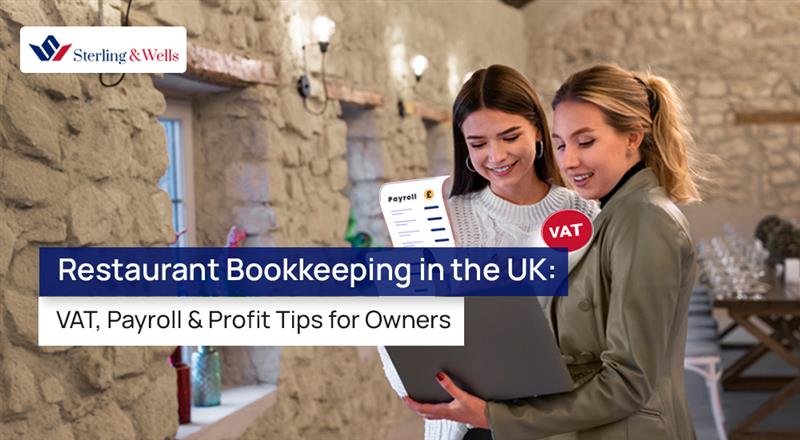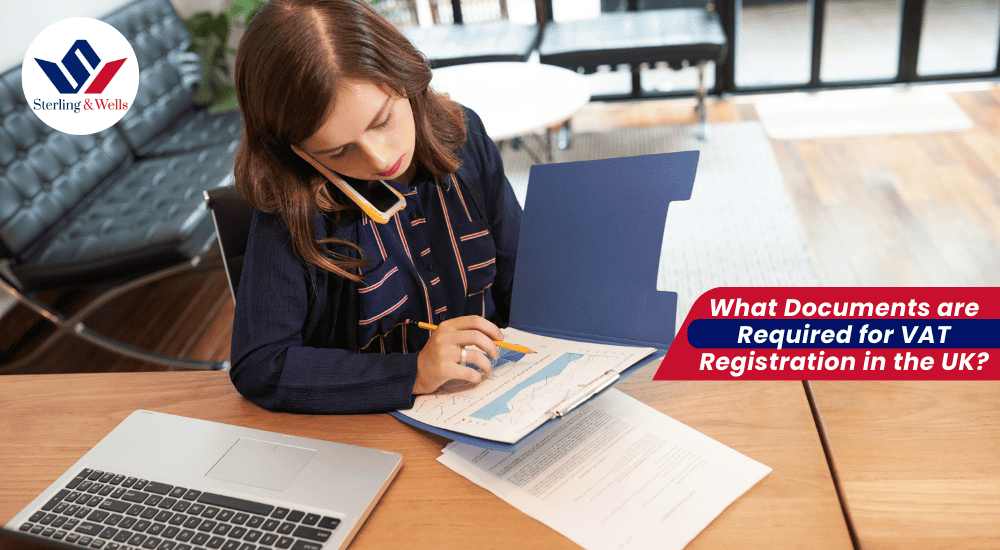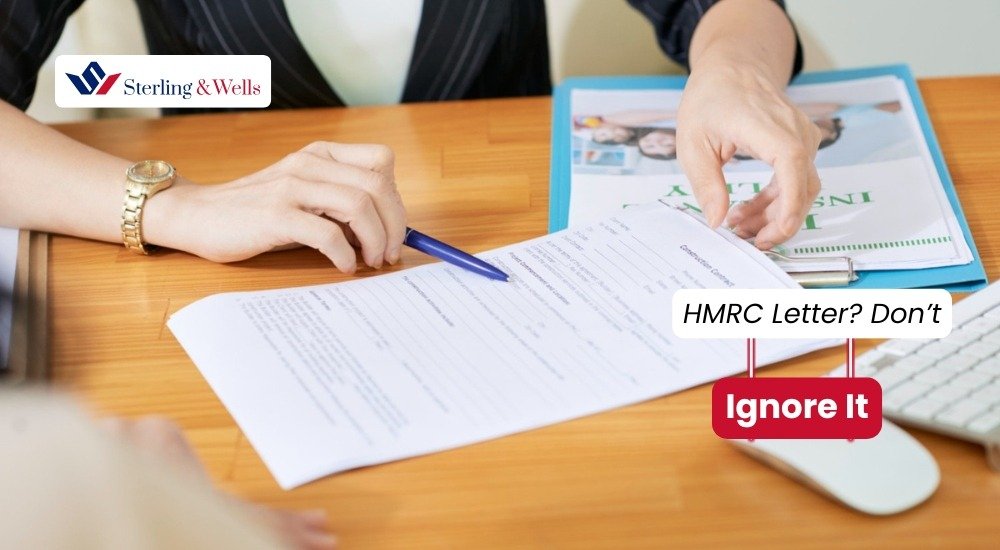Running a successful restaurant in the UK is no small feat. Beyond mouth-watering menus and memorable service, maintaining healthy profits hinges on a rigorous approach to restaurant bookkeeping. Why? Because VAT rules are nuanced, payroll costs are rising and margins remain tight across the hospitality sector.
Lucky for you, we have this comprehensive guide that will show you how to master bookkeeping in restaurants for lasting financial success.
The Fundamentals of Restaurant Bookkeeping
Bookkeeping is the backbone of your restaurant’s financial health. But unlike generic business accounting, bookkeeping in restaurants must account for daily cash flow swings, high transaction volumes, tips management and complex VAT categories.
A strong restaurant bookkeeping system systematically tracks every penny that flows in and out and covers sales, purchases, inventory, wages, taxes and more. By integrating these records with digital tools and best practices, modern restaurant bookkeeping must give you the visibility and control you need to thrive in the fiercely competitive UK market.
Setting Up Your Restaurant Bookkeeping System
Getting your restaurant’s hospitality bookkeeping off to the right start is crucial. That’s why you should follow these steps to ensure you neither miss anything nor rush into advanced systems that you cannot handle.
-
Chart of Accounts
These must be structured ledgers for restaurant-specific categories, like food sales, drinks, tips, promotions, cost of goods, staff wages, rent, utilities, VAT payable and petty cash. Preparing this chart streamlines reporting and tax compliance.
-
Integrated Accounting & POS Software
Use tools that synchronise with your point-of-sale system and automatically track sales, inventory, payroll, VAT and more. Reliable options include Xero and QuickBooks but you should explore other alternatives that automate bookkeeping.
-
Establish Procedures & Schedules
Define daily, weekly and monthly restaurant bookkeeping tasks like recording sales, processing vendor invoices, bank reconciliations and payroll runs. Consistency is key to avoiding errors.
-
Keep Records
Organise digital and paper records for invoices, receipts, payroll, VAT returns and bank statements. This not only facilitates accurate restaurant bookkeeping but ensures your business is ready for any audit or financial review.
Mastering VAT in Restaurant Bookkeeping
Properly accounting for VAT is one of the trickiest parts of restaurant bookkeeping in the UK. This is because the rules are complex and ever-changing and there are different rates applicable depending on what you sell and how it’s served.
Understanding Restaurant VAT Rates
-
Standard Rate (20%)
Applies to most dine-in meals, in-house beverages and alcohol.
-
Zero Rate
Applies to most food and drink sold for human consumption, provided it is not supplied in the course of catering. This includes items like cold sandwiches, fruit and vegetables. This includes items like cold sandwiches, fruit, and vegetables.
As a restaurant owner, you must register for VAT if your taxable turnover exceeds £90,000 in any rolling 12-month period.
VAT Best Practices
-
Set Up VAT Codes in Your POS
Ensure each sale is tagged to the correct VAT rate to reduce manual corrections in your restaurant bookkeeping.
-
Keep Clear Records
Save all purchase invoices, VAT receipts and sales data for at least six to seven years.
-
Reclaim VAT Where Possible
You can offset VAT paid on business expenses (think utilities, equipment and supplier invoices) against your VAT liability.
-
Regularly Review VAT Treatment
As menu items, promotional offers or takeaway services change, check they’re coded correctly for VAT within your restaurant bookkeeping system.
Payroll: Navigating Complexity in Restaurant Bookkeeping
Payroll is a particularly challenging aspect of restaurant hospitality bookkeeping due to frequent staff changes, variable shifts, minimum wage adjustments and the complexity of tips. In payroll, you have to know and understand a whole host of things like:
-
National Living Wage Compliance
Restaurants must legally pay their staff who are above the age of 21 a minimum of £12.21 per hour. Those between the ages of 18 and 20 must be paid £10.00 per hour and those aged 16 and 17 and apprentices must earn £7.55 per hour. Bookkeeping must tightly track hourly rates, overtime, variable hours and all statutory deductions.
-
Tips & Gratuities
Tips not paid via payroll (cash tips kept by staff) are not subject to PAYE, but tronc systems (pooled and distributed tips) or any tips processed via payroll must be taxed and reported as earnings. Always keep separate records for salary, tips and service charges in your restaurant bookkeeping system for legal and reporting accuracy.
Payroll Best Practices
-
Establish clear time-keeping protocols because accurate clock-in and clock-out data is critical
-
Run payroll on a regular schedule and always submit required reports (like PAYE) on time
-
Produce clear payslips and maintain compliance with all employee rights and obligations
-
Regularly reconcile payroll records with your general ledger and bank statements
Daily, Weekly & Monthly Restaurant Bookkeeping Tasks
A best-in-class bookkeeping approach involves frequent and structured attention to your records. A brief outline of the tasks involved is as follows:
Daily Tasks
-
Record all sales and receipts from the POS, split by payment method and VAT category
-
Deposit cash receipts, reconcile cards and track credit sales
-
File all purchase invoices, receipts and expense reports
Weekly Tasks
-
Reconcile bank statements and credit card settlements
-
Review and pay suppliers to avoid late fees and foster strong relationships
-
Monitor inventory purchases against consumption to catch wastage or theft
Monthly Tasks
-
Prepare and review profit and loss statements and balance sheets
-
Process payroll, pay staff, and file tax submissions
-
Review actual performance versus budget to flag cost overruns or margin dips
-
Submit VAT returns, file pension contributions and prepare for any statutory filings
Routine and proactive restaurant bookkeeping is the key to avoiding clutter, catching errors early, and understanding where your money goes.
Key Bookkeeping Metrics & Profit Optimization Tips
Restaurant bookkeeping is far more than just compliance. When deployed wisely, it is a roadmap to higher profits and smarter business decisions.
But what does wise use of bookkeeping mean? It means focusing on these essential KPIs:
-
Gross Profit Margin
Regularly review to ensure food and drink markups cover not just cost but also labor and overhead. UK restaurant margin targets often fall in the 65% to 75% range.
-
Costs of Goods Sold (COGS)
Track weekly so you can adjust pricing or renegotiate with suppliers if your cost base rises.
-
Labor Cost Percentage
Aim to keep wages (including National Insurance and pension) below 30% to 35% of total sales.
-
Average Spend Per Cover & Table Turn Rate
Use financial data from your bookkeeping to identify when, how and what your customers are spending.
-
Net Profit Margin
This is the real test. You must be able to keep your net profits in the 8& to 12% range after all costs.
-
Cash Flow
Maintain rolling cash flow forecasts so you’re never surprised by HMRC, supplier bills, or payroll.
Refine your restaurant bookkeeping to produce clear and actionable reports. Identify profit leaks (such as food waste or excessive discounts), optimise menu pricing and align your staffing schedule with actual demand for peak efficiency.
Frequently Overlooked Pitfalls
-
Misclassifying Sales & VAT Rates
With complex VAT rules in the UK, it’s easy to apply the wrong rate, especially for mixed menus (hot/cold, takeaway/dine-in etc).
-
Neglecting Daily Reconciliations
Small discrepancies add up. Reconciling sales and payments daily ensures you spot mistakes while they’re still easy to resolve.
-
Missing Payroll Deadlines
Late payroll submissions result in immediate HMRC penalties.
-
Failing to Account for Tips Properly
Tips and troncs must have their tax handled correctly to avoid penalties.
-
Overlooking Regular Budgeting
Optimizing profits is impossible without clear performance tracking in your restaurant bookkeeping system.
Conclusion
The most successful UK restaurants are those whose owners treat restaurant bookkeeping not as a chore, but as the engine behind every key decision. When you combine disciplined financial tracking, smart technology and expert advice, you not only stay compliant with VAT and payroll requirements but unlock true business growth.
Investing in your bookkeeping processes pays for itself many times over in stronger compliance, fewer headaches and profitable growth. In a business built on fast pace and tight margins, let bookkeeping be your secret ingredient for enduring success.
Key Takeaways
-
Master VAT categories and automate compliance wherever possible
-
Be vigilant and proactive with payroll and tips management
-
Use daily and weekly reviews to spot problems and optimize profit
-
Rely on digital tools and, when possible, lean on specialist support to elevate your restaurant bookkeeping from admin burden to strategic advantage






